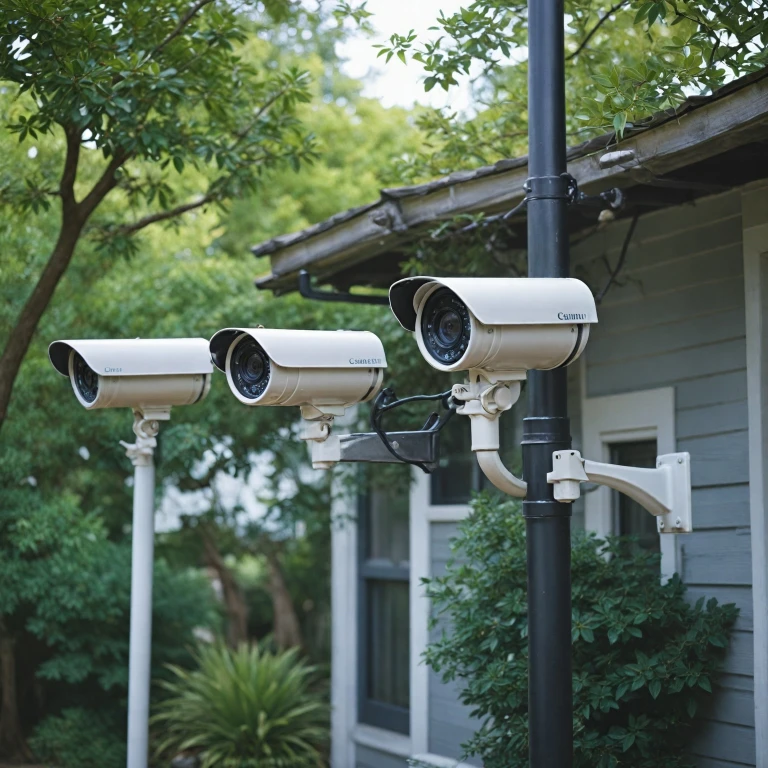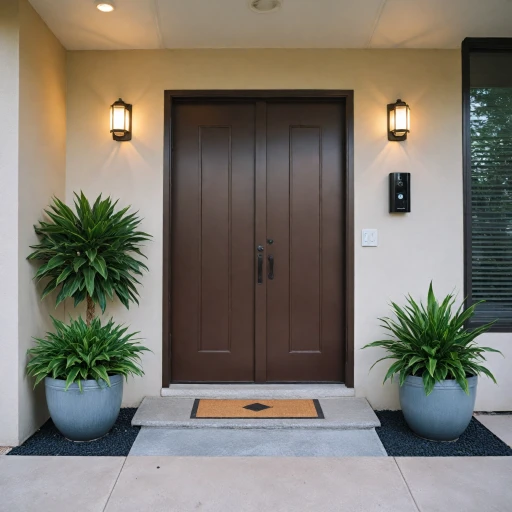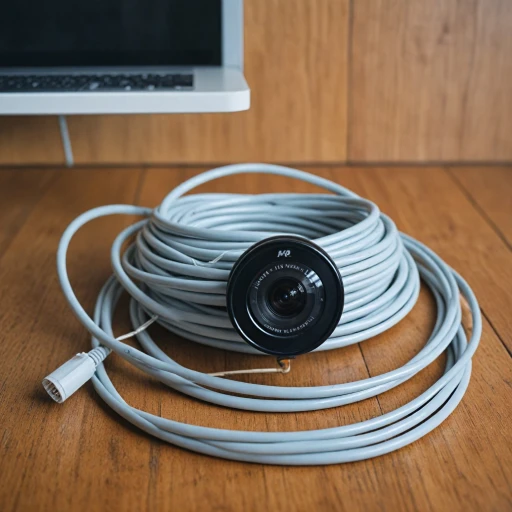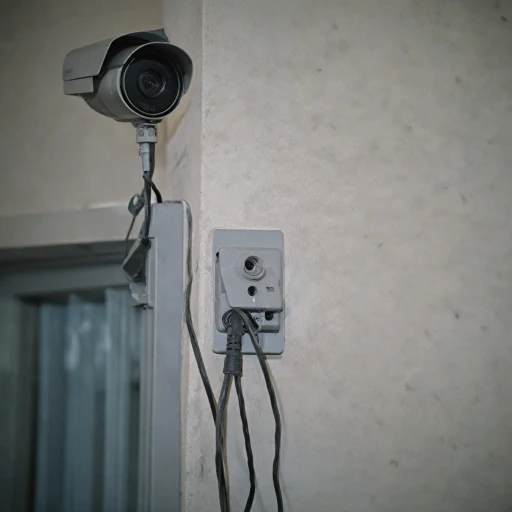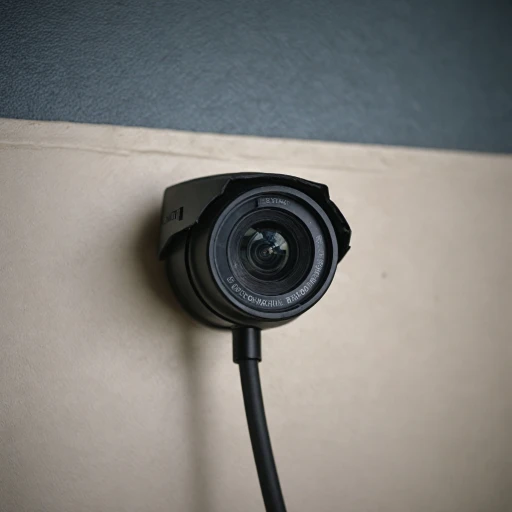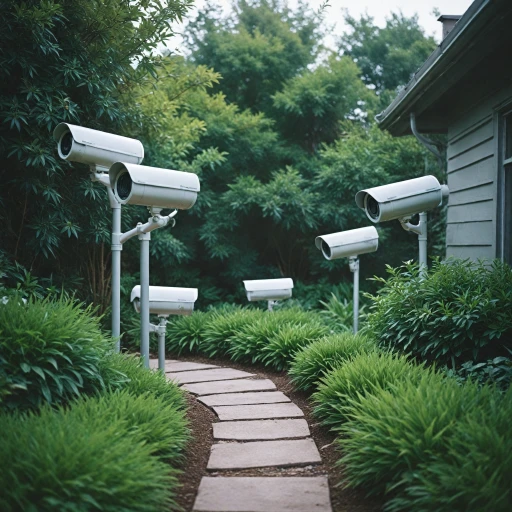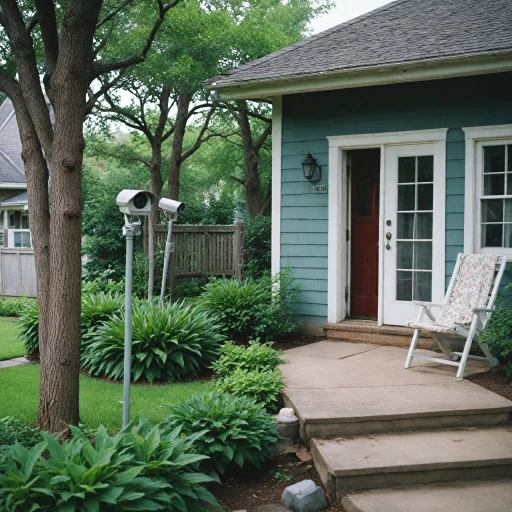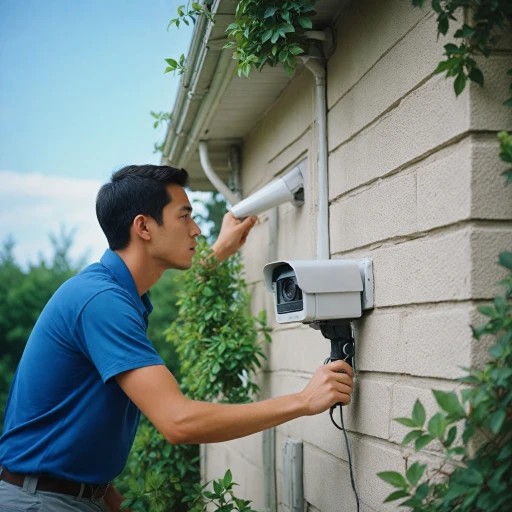
Understanding Offline Security Cameras
Offline Security Cameras: A Dive into Technology
Security cameras that function without the need for an internet connection have become a cornerstone for many homeowners aiming to achieve robust surveillance without being reliant on WiFi. These systems ensure that your property remains under the watchful eye of technology, even in areas with poor internet connectivity or in locations where a WiFi network is simply not an option. To understand how these cameras operate independently, it is essential to explore their technology and functionality. Typically, offline security cams rely on local storage solutions, such as SD cards, to store footage directly on the device. This method negates the need for third-party cloud storage and protects video data from unauthorized access via internet breaches. Another key component of these cameras is their ability to function on battery power. Battery powered options provide flexibility, allowing for placement in various locations without worrying about power outlets or wiring. Adding layers of versatility, some systems are equipped with alternative power options like solar panels. When it comes to connectivity, offline systems often use wireless protocols like RF communication or require no connectivity at all, depending on the design. This allows the cameras to transmit data to another device or keep the footage stored locally without the reliance on internet bandwidth. In some cases, systems might also integrate cellular data capabilities, utilizing a SIM card to support real-time alerts and remote monitoring, circumventing the need for traditional WiFi networks. For more choices that don’t depend on WiFi setups, exploring home security cameras that don't require wifi can open up additional alternatives. Offline cameras also shine in scenarios where you have limited or no access to electricity. Their wireless and often portable nature means they can function effectively, ensuring your security measures are not compromised in isolated or outdoor environments. With these considerations in mind, home security enthusiasts find offline cameras an attractive solution due to their blend of autonomy, flexibility, and security – all without the internet.Benefits of Using Security Cameras Without Internet
Advantages of Surveillance Solutions that Don’t Need Internet
Using security cameras without needing an internet connection provides a host of benefits, particularly for those in areas with limited or unreliable connectivity.- Enhanced Reliability: Offline security cameras ensure your premises are monitored without interruptions that might occur due to internet outages. Whether it's power disruptions or local internet service issues, these cameras can continue operating, providing consistent security coverage.
- Data Privacy: By utilizing local storage, your video footage is less vulnerable to cyber threats. With no need for data to be transferred over the internet, the risk of hacking is minimized, offering peace of mind for those concerned about privacy and data security.
- No Monthly Fees: Many online security systems require subscription fees for cloud storage or monitoring services. Cameras that store footage locally eliminate the need for ongoing financial commitments, making them a cost-effective alternative for budget-conscious consumers.
- Flexibility in Placement: Wireless cameras without internet can be placed in remote locations where internet access is unavailable. This feature is especially useful for rural properties or construction sites where traditional internet coverage may be sparse.
- Power Options: Many of these cameras are battery powered, allowing for easy installation without needing direct power sources. Solar options also exist, adding to the independence from traditional power grids, making them suitable in various environments.
Types of Offline Security Cameras
Exploring Different Varieties of Offline Cameras
When considering security cameras that work without internet, it's essential to familiarize yourself with the various types available. These cameras are ideal for those looking for a security solution without relying on WiFi connectivity or internet access.- Analog Cameras: These traditional devices are often part of a closed-circuit television (CCTV) system. They transmit video footage to a local storage device, such as a DVR, without needing any wireless connection.
- Battery-Powered Cameras: As the name suggests, these cameras run on batteries, making them highly flexible and portable. They can operate independently of a power source, which means they don't require WiFi or internet connection. To capture and store security footage, often a memory card is used.
- Cellular Security Cameras: These cameras provide an alternative to WiFi by using cellular data for transmitting and storing video footage. Equipped with a SIM card, they are ideal for places where WiFi is unavailable.
- Wireless Security Cameras with Local Storage: This type relies on local storage options like SD cards rather than cloud storage, thus operating without a constant internet connection. They store footage internally, providing a secure way to keep data offline.
Installation and Setup Considerations
Setting Up Security Cameras Without Internet
For those considering an offline security camera setup, understanding the installation process is critical, as these systems often diverge from typical cloud-based models. Proper installation is vital for ensuring that your security measures are reliable and effective.- Power Source Options: Offline security cameras might rely on different power sources. Depending on your circumstances, you may choose a battery-powered camera, which offers flexibility in placement as it doesn’t require a power outlet. Alternatively, consider using a wired connection for continuous power supply. Ensure your chosen power option aligns with your long-term maintenance plans.
- Local Storage Solutions: Unlike security cameras connected to the internet, offline cameras store video footage locally. Consider options like SD cards or DVR systems for storing your surveillance footage. Capacity matters—ensure the storage plan accommodates your needs by calculating how much footage you'll need to store based on recording quality and frequency.
- Camera Positioning and Coverage: Ensuring full coverage is essential. Evaluate each area that requires surveillance and decide on strategic camera placements. Remember, wireless security cameras without internet can be more flexible in positioning, but ensure you’re maximizing their field of view for optimal surveillance.
- Night Vision and Environmental Considerations: If night surveillance is a priority, select cameras that excel in low light. The local environment, such as whether cameras will face exposure to the elements, should inform your choice between weatherproof versus indoor models.
- DIY vs. Professional Installation: Depending on your technical comfort level, you may choose to set up the system yourself or hire professionals. DIY installation can save costs and offer a learning experience, but professional setup ensures precision and expertise, especially when dealing with comprehensive security systems.
- Regular Maintenance and Checks: Regularly check the footage, battery levels, and ensuring the hardware remains in good condition is crucial. Address any hardware issues—like connectivity or power problems—before they compromise security.
Challenges and Limitations
Potential Obstacles with Offline Security Cameras
While offline security cameras offer a range of advantages, users may encounter certain challenges. Being aware of these limitations can help in making informed decisions.
Limited Remote Access: Without an active internet connection, accessing live footage remotely can be difficult. These cameras generally store video locally, so users may need to retrieve the data physically from the camera’s storage medium, such as an SD card.
Storage Capacity: Offline security cameras often rely on local storage methods. Whether using an SD card or a camera’s internal storage system, users can run into space constraints, particularly if high-resolution video or footage with night vision is recorded continuously.
Firmware Updates: Staying updated with the latest security and performance improvements is usually easier with online systems. Without wifi or an internet connection, manual updates may be necessary, which could require unmounting the camera temporarily.
Integration Challenges: If a user has a mixed security environment with both offline and online cameras, it might be challenging to integrate systems that work without internet into a broader, cohesive surveillance strategy. Compatibility with other wireless security systems might also be limited.
Power Supply: While battery-powered options exist, ensuring a continuous power supply is crucial for uninterrupted surveillance. Cameras without electricity backup might encounter downtime during power outages unless equipped with a reliable battery system.
By addressing these challenges in conjunction with exploring the numerous benefits and diverse types of offline cameras, users can effectively tailor their security setup to best suit specific needs and scenarios.
Choosing the Right Offline Security Camera for Your Needs
Finding the Perfect Fit for Your Protection Needs
Choosing the right security camera system without WiFi or internet connection involves considering several factors that will contribute to the safety and effectiveness of your surveillance efforts. Here's a guide to help you make an informed choice:- Evaluate Video Storage Options: Determine whether you prefer local storage options such as an SD card, or if you need a system with cloud storage capabilities. Local storage can be a more secure choice as it eliminates the risk of data leaks through internet connections. However, keep in mind the capacity and convenience offered by cloud storage.
- Power Source Matters: Decide whether a battery-powered cam or a wired connection suits your preferences and logistics. Battery powered cameras provide flexibility in positioning, but make sure the battery life aligns with your expectations to avoid frequent replacements or recharging.
- Connectivity Requirements: Some offline security cameras may utilize a SIM card for cellular data, allowing remote access if needed. Consider the areas you need to monitor; if cellular security is required due to the location's remoteness, this could be a worthwhile option.
- Video Quality and Features: Assess the image resolution, night vision capabilities, and field of view. These features are crucial for capturing clear footage, particularly in low-light conditions or wide areas. Higher quality video helps with better identification and evidence collection.
- Installation and Setup: Consider the complexity of the installation process. Some wireless security cameras are user-friendly and easy to set up on their own, while others may require professional installation for optimal placement and connectivity.
- Budget and Brand: Finally, ensure that your chosen camera fits within your budget. Review customer feedback on popular platforms like Amazon to understand real-world performance and reliability. Prioritize established and reputable brands over lesser known alternatives to ensure quality and support.

